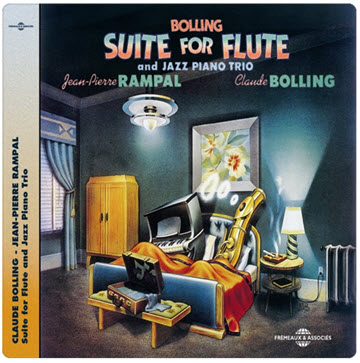“I’d rather sing grand opera than listen to it.” ~ Don Herold, American writer and artist
“How wonderful opera would be if there were no singers.” ~ Gioacchino Antonio Rossini – 19th century Italian operatic composer
“While stationed in Japan, the rakish American naval officer Pinkerton marries the trusting young geisha known as Madam Butterfly, although he does not intend the union to be permanent. He returns to America, leaving Butterfly expecting a child, and marries an American girl. Deserted now for three years, the still-faithful Butterfly, not knowing of Pinkerton’s second marriage, assures her maid Suzuki that her husband will return one day.” From the liner notes of “Romantic Callas” compilation CD
Either you get opera or you don’t. Regardless of how you feel about opera though, you owe it to yourself to listen to Maria Callas. She is the standard by which all singers may be judged, and she was the finest singer of the twentieth century, bar none; the finest singer in any language, in any genre of music.
That’s not to say she almost had the most beautiful voice. I’ve spoken before about the courage to sing ugly; many singers have commented that to be a complete artist, one must reveal all sides. In film, for example, several actors in recent years have had the courage to gain weight, to appear without makeup for their roles, and show the less glamorous aspects of their appearance for the sake of authenticity. Witness Robert De Niro in “Raging Bull” and Charlize Theron in “Monster”. I like to think that Callas was ahead of her time in her dedication to the composer, to the work, at the risk of sounding less than beautiful.
What constitutes artistry in vocal performance?
Renee Fleming, one of the most prominent of contemporary opera singers, attempted to answer this question. As gorgeous as Fleming’s voice is, even she admitted that Callas placed her own personable stamp on everything she sang, something by the way which Fleming does not. Here is what Fleming had to say on Callas:
“For me, in purely vocal terms, it was the sound of sadness in her voice that was most moving – something in its chiaroscuro sound is like a knife in my heart. It’s impossible to know if that was the sound her voice was naturally imbued with, or if it was the heartbreak in her life that colored it so.” (from Renee Fleming’s The Inner Voice)
Well, Renee, you know more about opera that I will ever know, but here I think you’ve got it wrong. The recording I’ve selected is from 1955, an inexpressibly happy time in Callas’ life, her heart not yet broken by Aristotle Onassis.
After meeting Audrey Hepburn in 1953, Callas placed herself on a strict diet without pasta, without bread and without alcohol, eating only one meal a day despite a rigorous schedule.
By 1955 she was regarded as the queen of La Scala and was revered as the most glamorous opera singer in the world. She had achieved fame and fortune and was delighting in it. Yet in her recording of Madame Butterfly she becomes the character completely, without holding back. I think it has nothing to do with her personal life and everything to do with her artistry.
Certainly no one at the time doubted the electrifying effect she had on audiences, or the staggering transformation she had made of her external appearance. Once ugly in her youth, she had become physically compelling. As for tonal range, hers was remarkable, almost three octaves.
The effect she had and has upon the listener is all-encompassing. One forgets that one is hearing a recording or even that one does not know the meaning of the words being sung. Pavarotti had this quality. So did Montserrat Caballe (listen to her version of “Casta Diva”) In such circumstances the listener surrenders willingly to the experience, to the cleansing of the soul enabled by the meeting of the ordinary (you and I) with the extraordinary.
Such sublime achievement in vocal performance is not confined to opera or the so-called high arts. Streisand displays great artistry in her singing. Celine Dion does not. Diana Krall does today. Sinatra did. Michael Buble does not. Ray Charles, Sam Cooke, and Aretha Franklin: they achieved the extraordinary as did Nina Simone and Billie Holiday until the end of their days, even though their voices were a shattered fragment of former glory.
Callas not only had The Cry, a gift fellow musicians critics regard with the reverence reserved for the supreme practitioners of their craft, but she used that gift with dignity. Her recordings will be treasured in the decades and the centuries to come.



